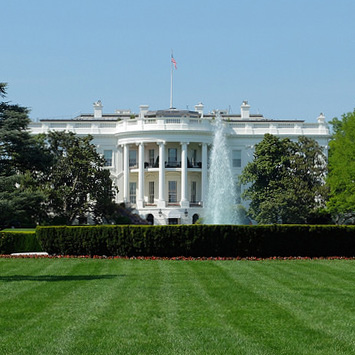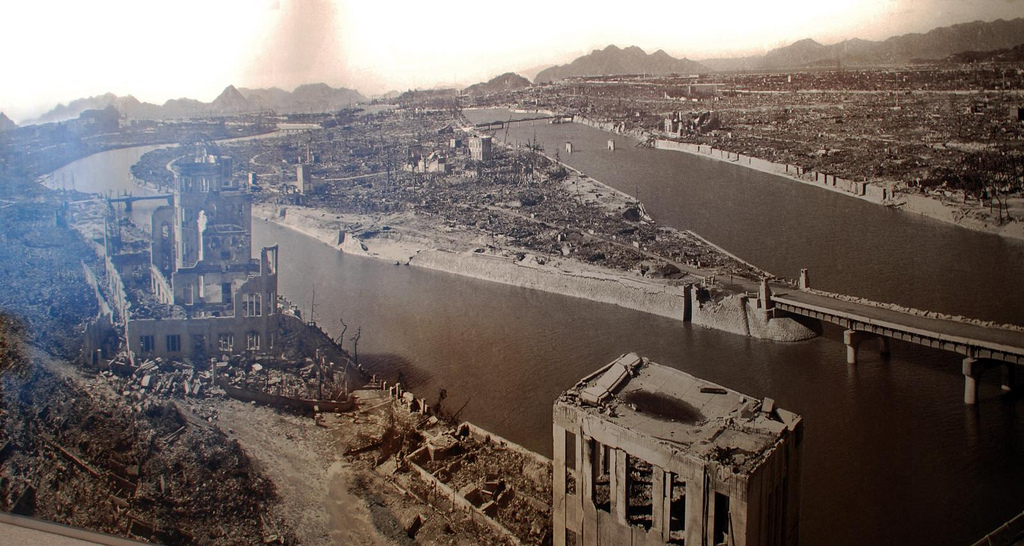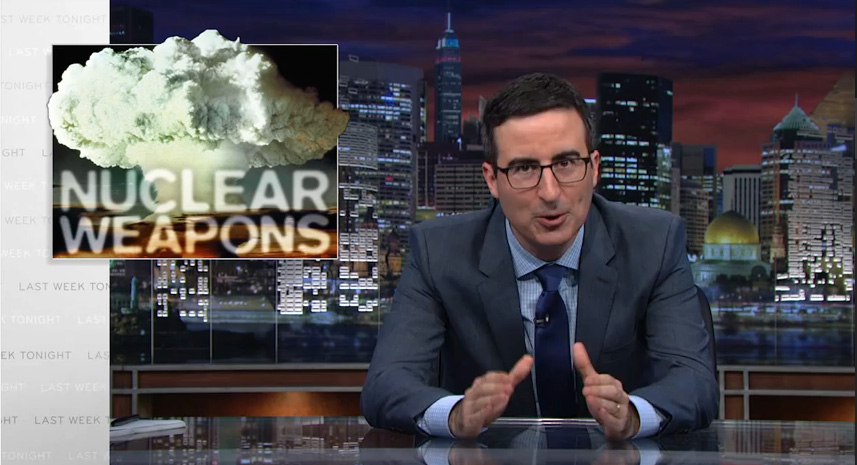Why I Think We Can Eliminate Nuclear Weapons
When I moved to Takoma Park with my wife, Priscilla, and daughter, Amy, 29 years ago, it was already a Nuclear-Free Zone. I have been working on nuclear weapons issues ever since and for the first time in my professional career that local stand has a realistic chance of becoming national and global policy.
A big part of the reason is the personal commitment of President Obama to "seek the peace and security of a world free of nuclear weapons." I met the President at a private reception at the end of the Nuclear Security Summit he convened in Washington in April. He spoke passionately about this vision and the need to organize all nations around a series of practical steps towards that goal.
It was the personal high point of a remarkable two weeks that has begun the transformation of US nuclear policy. What some have dubbed, "Nuclear Spring," began April 6 with the release of a new US nuclear strategy that reduced both the role and numbers of nuclear weapons. Then the President flew to Prague on April 8 to sign a new nuclear reductions treaty--New START--with Russian President Dmitry Medvedev.
On April 12-13, Obama gathered 50 world leaders in Washington. They agreed on an action plan to prevent nuclear terrorism by stopping it at its source--securing within four years and eliminating where possible all the nuclear material terrorists or other nations could use to build a bomb.
But for the hundred people at the reception that night at the Washington Convention Center, the policy details were secondary to the spirit and enthusiasm of the moment. Most felt, as I did, that something special was happening here.
After I shook President Obama's hand, I looked around. Over in one corner Speaker of the House Nancy Pelosi was in an animated and friendly discussion with Chinese President Hu Jintao. Now, you don't see that every day.
Senator John Kerry was in another corner talking with President George H. W. Bush's former National Security Advisor Brent Scowcroft. Under Secretary of State Ellen Tauscher was beaming as she chatted up European officials. Congressman Adam Schiff came over to congratulate me! (And I returned the congratulations to him.) All the top White house policy staff were there, basking in the glow of success.
House Budget Committee Chairman John Spratt (who I worked with years ago on the Armed Services Committee) was geeking out with two experts the foundation I new lead has funded for years, Ken Luongo and Matt Bunn. He, Ken, Matt and I reminisced about working on this issue in the House in 1989 and the early attempts to secure nuclear materials even before the fall of the Berlin Wall.
What struck me was how long so many people have been working to move this critical agenda. Because the threats are increasing, because the Bush Doctrine of regime-change not only failed to stem these threats but increased them, because Obama is joined by many other world leaders in the desire to reduce and eventually eliminate nuclear weapons, we now have the chance to finally end the Cold War policies that required thousands of weapons and trillions of taxpayer's dollars for a strategy that several times almost triggered a global thermonuclear war.
We are now walking back from the brink.
If Takoma Park-based expert Arjun Markajani and his colleagues are reading this, I know what they would say: "We are walking back too slowly." And they are right. The new policy is full of compromises, like a nuclear weapons budget that will still total $180 billion over the next ten years. And with Air Force experts writing that we could fulfill all our military needs with 311 nuclear weapons, why do we still keep 5,113 in our stockpile, as the Secretary Hillary Clinton just disclosed (the first time that number has been made public)?
It is the motion that matters. After years on the defensive, trying to stop one crazy new policy after another, we are now on the offensive. I am convinced that if we fight hard enough over the next two years, we can lock in this nuclear pivot, change US policy and with it global policy.
A big test comes up this summer. The Senate must approve the New START treaty. If it does, it will not only be the most significant arms control treaty in 20 years, it will be the first time a Democratic president has won approval of such a treaty. It will be a legacy trophy for Obama, a huge win for the forces of progress, and a major step towards a safer and more secure world.
I have been working these issues for over 25 years. I have never been more optimistic about our prospects.
Joe Cirincione is a Takoma Park resident, president of Ploughshares Fund and author of Bomb Scare: The History and Future of Nuclear Weapons.



